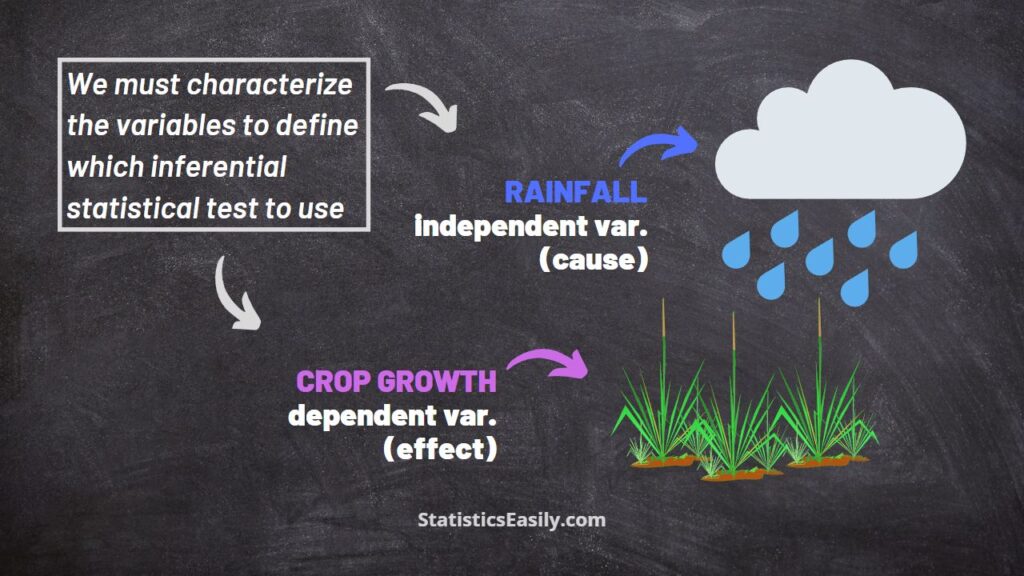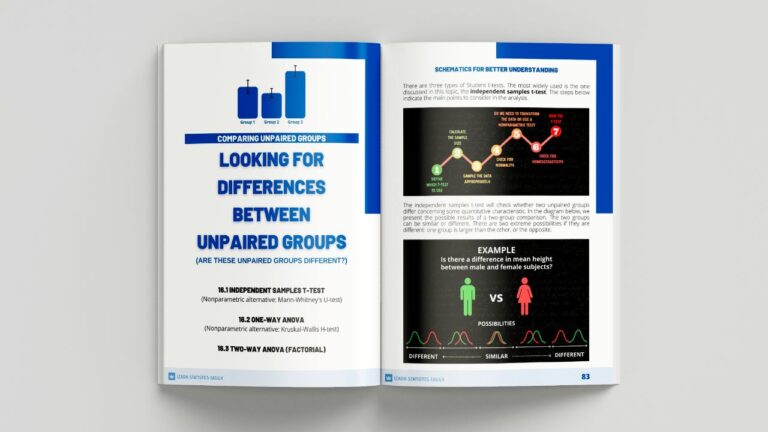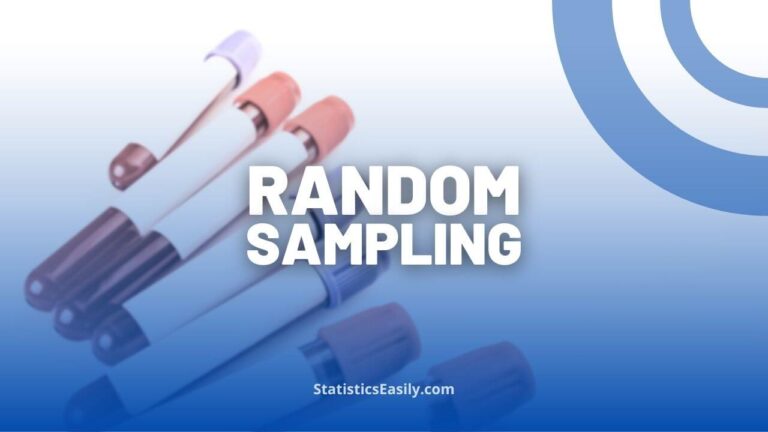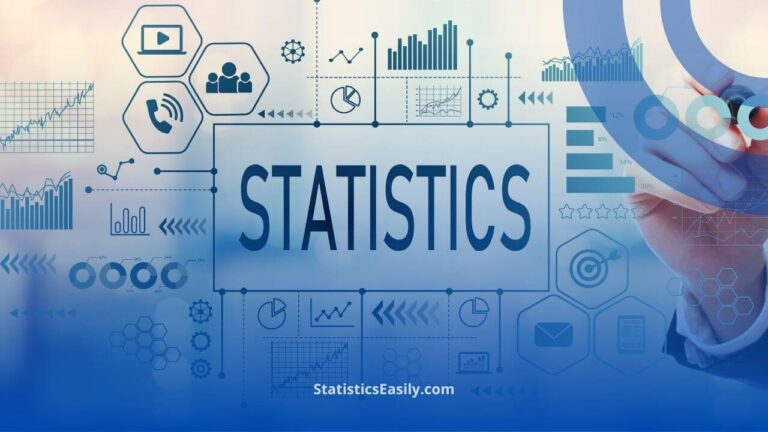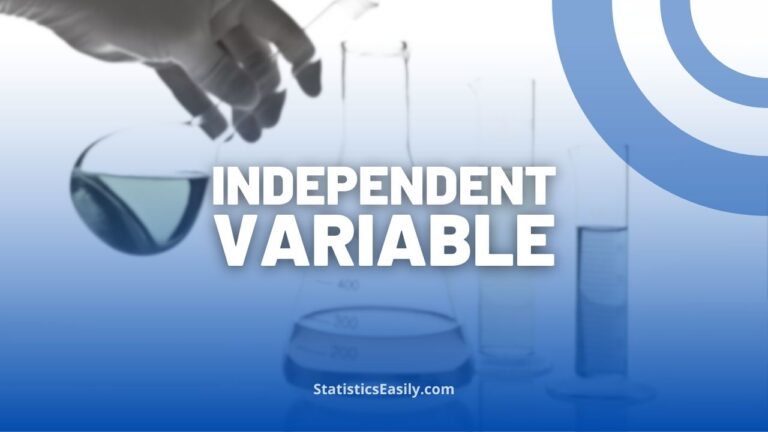In Science, What is a Dependent Variable?
A dependent variable in science is an outcome or response measured in an experiment, which changes based on manipulating the independent variable. It helps researchers understand the impact of the independent variable on the outcome.
Highlights
- Dependent variables are outcomes or responses measured in experiments or studies influenced by independent variables.
- Dependent variables are critical for testing hypotheses and validating theories in scientific research.
- Differentiating dependent and independent variables helps design robust studies and avoid confounding variables.
- Common misconceptions about dependent variables include believing they must always be quantitative or less critical than independent variables.
- Aligning dependent variables with research questions and hypotheses is crucial for selecting appropriate variables in research.
In Science, What is a Dependent Variable?
A dependent variable is an outcome or response researchers measure in an experiment or study. This variable depends on one or more independent variables, the factors manipulated or controlled by researchers to watch their effects on the dependent variable. Dependent variables can be continuous, categorical, or binary, which is critical for determining the effectiveness of interventions or treatments.
The importance of dependent variables in scientific research cannot be overstated. They are the foundation for testing hypotheses and validating theories. They provide quantifiable data to evaluate the impact of changes in independent variables. Researchers can draw meaningful conclusions about the relationships between various factors by accurately measuring dependent variables, ultimately advancing our understanding of the world.
It is crucial to differentiate between dependent and independent variables when conducting research. As mentioned earlier, dependent variables are the outcomes or responses researchers measure. In contrast, independent variables are manipulated or controlled factors to observe their effects. In a cause-and-effect relationship, the independent variable represents the cause, and the dependent variable signifies the effect. Understanding this distinction helps researchers design more robust studies and avoid confounding variables that may skew results.
In the realm of hypothesis testing, dependent variables play a pivotal role. Researchers formulate hypotheses by predicting the relationship between independent and dependent variables. Hypothesis testing involves statistical methods to assess the likelihood of the observed results happening by chance. By analyzing the dependent variables, researchers can evaluate whether the data supports or refutes their hypotheses, leading to a deeper understanding of the phenomena under investigation.
The concept of dependent variables applies across various scientific fields, from biology to psychology to physics. For example, in a medical study examining the effectiveness of a new drug, the dependent variable might be the reduction of symptoms. In contrast, the independent variable is the drug dosage. In a physics experiment, the dependent variable could be the time an object falls. The independent variable is the height from which it is dropped.
Some common misconceptions about dependent variables include believing they must always be quantitative or inherently less critical than independent variables. However, dependent variables can be quantitative and qualitative. Their importance is equal to independent variables since they are integral to understanding cause-and-effect relationships. Clearing up these misconceptions can help researchers avoid pitfalls when designing and conducting studies.
Selecting appropriate dependent variables in research is vital to ensure the study’s validity and reliability. Here are some tips for making the right choice:
1. Ensure that the dependent variable aligns with the research question and hypothesis.
2. Consider the feasibility of measuring the dependent variable accurately and consistently.
3. Assess whether the dependent variable is sensitive to changes in the independent variable.
4. Evaluate the ethical implications of measuring the dependent variable, particularly in human subjects research.
Table: Examples of Independent and Dependent Variables across Different Fields of Science. This table presents a variety of scientific disciplines and corresponding examples of independent variables (factors manipulated or controlled) and dependent variables (outcomes or responses measured) to illustrate their application and importance in research.
| Field of Science | Independent Variable | Dependent Variable |
|---|---|---|
| Biology | Fertilizer amount | Plant growth rate |
| Medicine | Drug dosage | Reduction of symptoms |
| Physics | Height from which object falls | Time it takes for the object to fall |
| Psychology | Therapy duration | Improvement in mental health |
| Environmental Science | Carbon dioxide levels | Global temperature changes |
| Education | Teaching method | Student test scores |
| Chemistry | Concentration of reactants | Reaction rate |
| Economics | Interest rate | Economic growth |
| Sociology | Social media usage | Levels of loneliness |
| Engineering | Material strength | Bridge load-bearing capacity |
🛑 Stop Struggling with Data Analysis
Find Out How Our eBook Can Turn You into an Expert Overnight!
Conclusion
Understanding the concept of dependent variables is crucial for conducting effective scientific research.
By accurately defining, measuring, and analyzing dependent variables, researchers can test hypotheses, validate theories, and uncover meaningful relationships between various factors across a wide range of scientific disciplines.
Ensuring that dependent variables are selected and measured appropriately is critical to the validity and reliability of research studies.
As scientists and researchers, we are responsible for navigating the complexities of dependent variables with diligence and care, contributing valuable knowledge and insights to the scientific community and society at large.
FAQ: In Science, What is a Dependent Variable?
Q1: In science, what is a dependent variable? A dependent variable is an outcome or response measured in an experiment or study, influenced by one or more independent variables, which are factors manipulated or controlled by researchers.
Q2: How do dependent variables differ from independent variables? Dependent variables are the outcomes or responses being measured, while independent variables are the factors manipulated or controlled to observe their effects. The independent variable represents the cause, and the dependent variable signifies the effect in a cause-and-effect relationship.
Q3: Why are dependent variables important in scientific research? Dependent variables are critical for testing hypotheses and validating theories in scientific research. They provide quantifiable data to evaluate the impact of changes in independent variables. In addition, they enable researchers to draw meaningful conclusions about the relationships between various factors.
Q4: Can dependent variables be both quantitative and qualitative? Yes, dependent variables can be both quantitative and qualitative. They can be discrete, continuous, categorical, or ordinal and take various forms depending on the research question and study design.
Q5: What are some examples of dependent variables in various fields of science? In a medical study, the dependent variable might be reducing symptoms, with the independent variable being drug dosage. In a physics experiment, the dependent variable could be the time an object takes to fall, with the independent variable being the height from which it is dropped.
Q6: How do dependent variables relate to hypothesis testing? Researchers formulate hypotheses by predicting the relationship between independent and dependent variables in hypothesis testing. They use statistical methods to analyze the dependent variables and assess whether the data supports or refutes their hypotheses.
Q7: What are common misconceptions about dependent variables? Common misconceptions include the belief that dependent variables must always be quantitative or are inherently less important than independent variables. However, dependent variables are integral to understanding cause-and-effect relationships and are equally important.
Q8: How can I select appropriate dependent variables for my research? To choose relevant dependent variables, ensure they align with the research question and hypothesis, consider the feasibility of accurate and consistent measurement, assess their sensitivity to changes in the independent variable, and evaluate the ethical implications of their measurement.
Q9: What factors should I consider when measuring dependent variables? Consider the reliability and validity of the measurement methods, the sensitivity of the dependent variable to changes in the independent variable, and the ethical implications of measuring the dependent variable, particularly in human subjects research.
Q10: What are the ethical implications of measuring dependent variables in human subjects research? Ethical implications include ensuring that the benefits of the research outweigh the potential harm to participants, protecting participants’ privacy and confidentiality, obtaining informed consent, and following relevant regulations and guidelines for conducting human subjects research.
Explore FREE samples from our recently released digital book and unleash your full potential.
Immerse yourself in advanced data analysis techniques, master the art of determining optimal sample sizes, and learn to communicate results effectively, clearly, and concisely.
Click the link to unlock a treasure trove of knowledge: Applied Statistics: Data Analysis.



